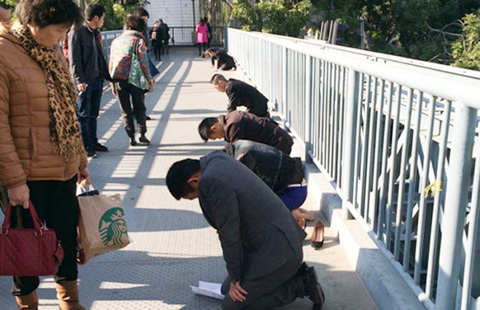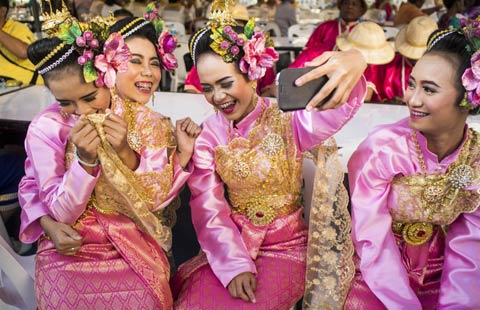Missing 'brides', a hidden hurt for 'leftover' men
By Wu Yan ( chinadaily.com.cn ) Updated: 2015-01-19 15:45:01
Communication and cultural barriers are obvious obstacles between couples when it comes to build a long-term stable relationship.
More than two months ago a Vietnamese woman threatened to jump from a 4-story apartment, in Wenzhou, East China's Zhejiang province, but her Chinese husband had no idea why. He admitted they seldom talked to each other in their six months of marriage because of language difficulties.
But the thorniest problem of mixed-marriages is their legitimacy. In most "missing bride" cases reported, a foreign "bride" is introduced by a broker, who collects service fees but fails to assist in managing legal immigration for the woman or marriage rites for the couple, which makes the "bride" invisible in China from a legal perspective.
"Buying a bride" may relate to human trafficking or marriage fraud, which is a violation of the law, said Chen Shiqu, director of the human trafficking task force under the Ministry of Public Security, the Beijing Times reported.
If the couple has disputes, both sides' rights lack the protection of the law, Chen said.
Life in Nanliyue village has gradually returned to normal. Yuan Xiaokang, a 20-year-old compatriot of Yuan Xinqiang and fellow abandoned "groom", is seeking a job, promising to earn the 100,000 yuan lost in his failed marriage. In big cities such as Beijing, rural men can earn 2,000 to 3,000 yuan a month, much more than what they would earn in the village.
Life in Nanliyue village has gradually returned to normal. Yuan Xiaokang, a 20-year-old abandoned "groom", is seeking a job, promising to earn the 100,000 yuan lost money. In big cities such as Beijing, rural men can only earn 2,000 to 3,000 yuan a month.
Others followed suit, except Yuan Xinqiang. He will wait a little longer, saying: "I can't believe she would fool me".
|
|
|
|
|
|
|
|




















 Raymond Zhou
Raymond Zhou Op Rana
Op Rana Berlin Fang
Berlin Fang Zhu Yuan
Zhu Yuan Huang Xiangyang
Huang Xiangyang Chen Weihua
Chen Weihua